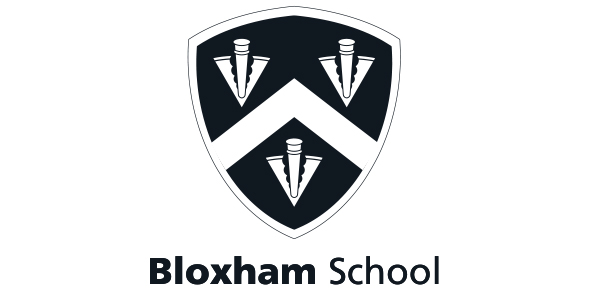Challenging students to solve real-world problems
In a creative new educational programme called the Bloxham Sustainability Challenge, schools in Oxfordshire and Warwickshire are working in partnership with Dalcour Maclaren to help young people gain vitally important skills for the workplace. Students have the opportunity to use ArcGIS tools to solve real-world problems and develop a deeper understanding of careers in the sustainability sector.
Students use ArcGIS tools including ArcGIS Survey123 to complete sustainability challenges.
Esri UK provides support for teachers and students, from the launch of each annual challenge to the judging.
Teachers deepen their understanding of GIS, through working with Esri UK and Dalcour Maclaren.
The Challenge
The Bloxham Sustainability Challenge was the vision of Claire Evans, Head of Geography at Bloxham School. She wanted to provide extracurricular opportunities for groups of Year 12 students to use geographic information system (GIS) technology to solve sustainability challenges and develop wider skills for the workplace. When she approached Dalcour Maclaren with her concept, the firm immediately seized the opportunity to get involved.
Dalcour Maclaren is a consultancy that unlocks planning consents for utilities and infrastructure clients. It employs a large number of apprentices and graduates and was keen to inspire more young people to consider careers in the sustainable development sector. Pooling their ideas and resources, Bloxham School and Dalcour Maclaren worked together to launch an innovative challenge for young people that has sustainability and GIS at its heart.
“Teachers can learn so much from working with industry partners like Esri UK and Dalcour Maclaren to increase learning opportunities for young people. Partnership is definitely the future of education.”
Claire Evans, Head of Geography, Bloxham School
The Solution
Teams of students participating in the Bloxham Sustainability Challenge are given a real-world scenario, a resource pack of background information and data, and access to Esri’s ArcGIS technology. They are then asked to evaluate a proposed development and identify the most sustainable option. In the first year, for example, Dalcour Maclaren challenged students to evaluate the impact of a potential solar park at Buckland Marsh and plan an appropriate route for an underground cable to connect it to the nearest electricity substation.
The challenge kicks off every year with a launch event, at which consultants from Esri UK provide training for students and teachers in how to use key tools within ArcGIS. In this way, the students quickly gain the core skills that they need to get started on the challenge. Useful resources, from the project brief to ‘how to’ guides, are hosted on an ArcGIS Hub website, where they can be easily accessed by students and teachers.
Students use ArcGIS Online to visualise the project area and analyse publicly-available data on habitats, land use, utilities and more. They also create ArcGIS Survey123 forms and use their mobile phones to capture data in the field. One year, Dalcour Maclaren asked students to evaluate a proposed reservoir at Abingdon, considering water supply, flooding risks, environmental impacts and water quality. They used ArcGIS Survey123 to capture the opinions of local residents, the water company and community groups.
At the end of each challenge, students present their findings and proposals to a judging panel comprising sustainability experts from Dalcour Maclaren and GIS experts from Esri UK. Teams can use ArcGIS to visualise their findings and justify their recommendations.
There has been strong interest in the initiative and, as a result, the Bloxham Sustainability Challenge has expanded since its launch to include students from other local schools including Stratford Girls’ Grammar School and the Warriner School. “We expect a further increase in participation in the years ahead and hope, one day, that the scheme might become a national one,” acknowledges Evans.
“All successful businesses need young talent coming in with the right skills and enthusiasm, and the more organisations can do to support schools, the better it will be for business in the long run.”
Mike Lee, Director, Dalcour Maclaren
Benefits
GIS skills acquired in fun projects
The Bloxham Sustainability Challenge is an innovative initiative that enables young people to learn how to visualise, analyse and collect data with ArcGIS. “These are all GIS techniques that we at Dalcour Maclaren use on a day-to-day basis, so students really are gaining very relevant knowledge, skills and experience,” observes Sarah Garvey, a Senior GIS Specialist at Dalcour Maclaren.
Experience of real-world sustainability challenges
The initiative gives students a deeper appreciation of the real-world challenges of developing sustainable infrastructure. For instance, in the Buckland Marsh challenge, students used ArcGIS to appreciate the complexities of laying a cable in close proximity to sites of special scientific interest, protected habitats and existing built infrastructure, and undertook cost benefit analyses of different routes.
Greater readiness for the world of work
Beyond gaining competence in using GIS, students learn how to communicate, problem-solve, plan research and present to audiences, all of which increases their readiness for employment. They also learn about careers in sustainability and gain inspiration for further study. “Students get the opportunity to see what the world of work looks like,” says Mike Lee, a Director of Dalcour Maclaren. “Then, when they come into the workplace, their journey is accelerated, and their confidence is so much stronger.”
Young talent nurtured for future roles
It isn’t just the students that benefit; Dalcour Maclaren recognises that it too benefits from its engagement with young people through this scheme. “Partnership with schools is so important for the long-term sustainability of business,” explains Lee. “All successful businesses need young talent coming in with the right skills and enthusiasm, and the more organisations can do to support schools, the better it will be for business in the long run.”
More confident GIS teaching in schools
Through the Bloxham Sustainability Challenge, teachers are learning more about how GIS is used in industry and becoming more confident teaching GIS skills. Teachers involved in the challenge now use GIS in more geography lessons with younger pupils to view live data on wildfires, for example. “Teachers can learn so much from working with industry partners like Esri UK and Dalcour Maclaren to increase learning opportunities for young people,” says Evans. “Partnership is definitely the future of education.”



